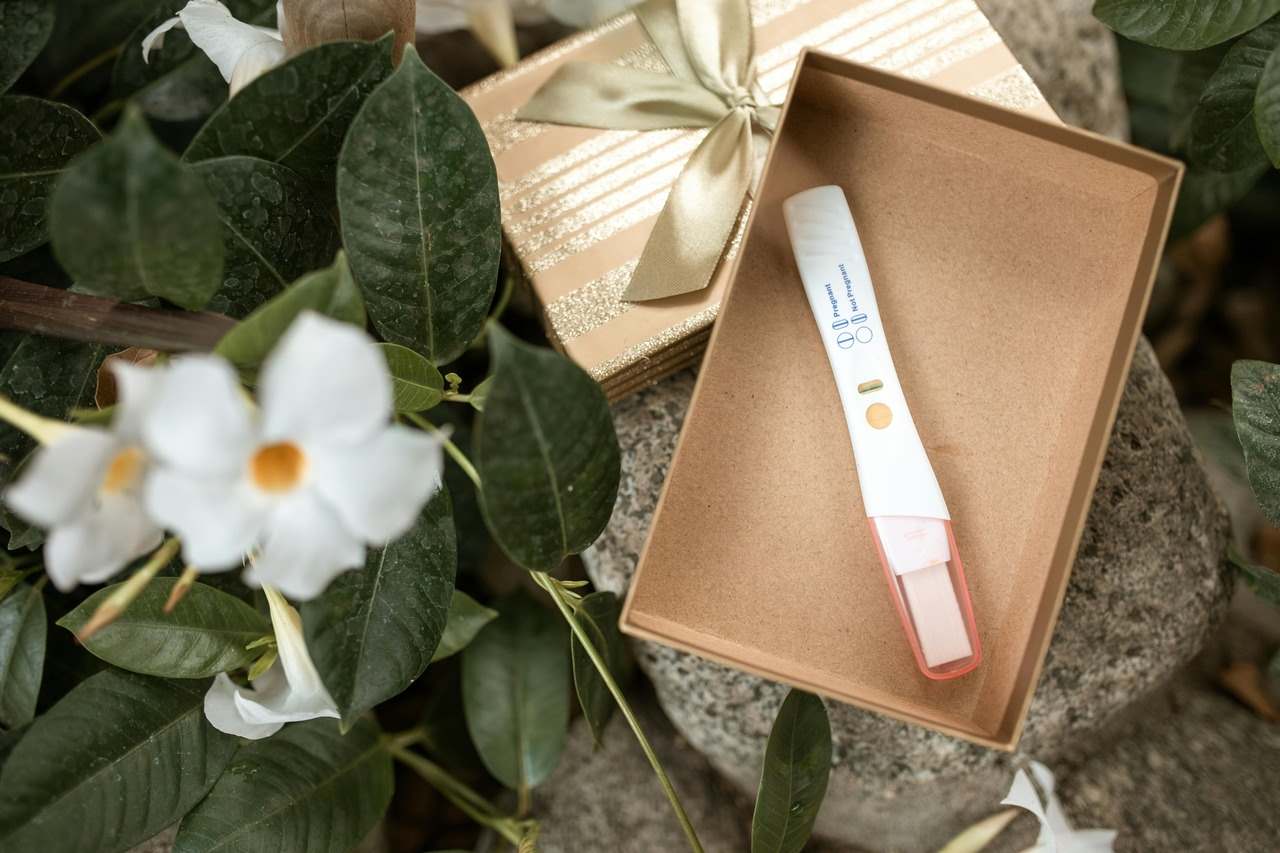Basics and definitions
LH (luteinizing hormone) is produced in the pituitary gland. In late follicular phase it rises quickly and triggers ovulation. The fertile window typically includes the five days before ovulation plus ovulation day. Trusted patient information: NHS. NHS: Fertility in the menstrual cycle
- LH surge: brief, marked rise shortly before ovulation
- Ovulation test (OPK): urine test that detects the LH surge and flags the most fertile 24–36-hour window
- Confirming ovulation: rise in basal temperature and progesterone after ovulation
Evidence and key numbers
- Fertile window: about six days (the five days before ovulation plus ovulation day). NHS
- LH timing: a positive ovulation test usually marks the most fertile 24–36 hours leading up to ovulation. NICE CG156
- Sperm survival: up to five days in supportive cervical mucus—so intercourse before the surge is effective. NHS
- Recommended frequency: every 1–2 days in late follicular phase. ACOG
- Important: OPKs predict ovulation via LH; they do not confirm it—confirm with BBT and progesterone if needed. NICE
Step-by-step
How to use ovulation tests correctly
- Choose your start day: with a 28-day cycle, begin around day 10; adjust earlier/later for longer/shorter cycles.
- Same time daily: test at the same time each day, for example between 10 a.m. and 8 p.m.
- Fluids: drink normally; don’t deliberately dilute or concentrate urine.
- Read and record: read results promptly and log them in an app or table.
- When positive: plan intercourse that day and the next; ovulation typically occurs within 24–36 hours. NHS
Combine methods
- Basal body temperature: confirms ovulation afterward via a small temperature rise
- Cervical mucus: clear and stretchy suggests high estrogen and impending ovulation
- Serum labs and ultrasound: useful in irregular cycles or during fertility treatment
Safety and hygiene
Follow the package insert, check the expiration date, use clean sample cups, and read within the recommended time. For digital tests, confirm battery level and symbol meanings.
Practical tips
- Be consistent: same time, same brand, daily testing during your expected window
- Save dated photos of strips so trends are easier to see
- Expect variability: stress, sleep, travel, and illness can shift the LH surge
- Regularity beats perfection: intercourse every 1–2 days in late follicular phase increases chances. ACOG
Comparison and alternatives
| Method | Purpose | Strengths | Limitations |
|---|---|---|---|
| Ovulation test (urine LH) | Predict ovulation | At-home, 24–36 hour heads-up | Does not confirm; PCOS may show atypical patterns |
| Basal temperature | Confirm after ovulation | Low cost, objective | No lead time; affected by sleep/illness |
| Cervical mucus | Natural observation | No cost, sensitive to estrogen | Subjective, needs practice |
| Serum LH, progesterone, ultrasound | Irregular cycles, treatment planning | High accuracy in clinical care | Appointments and cost |
In reproductive medicine, timing for IUI, IVF, or frozen embryo transfer is often guided by labs and ultrasound in line with NICE recommendations. NICE CG156
Policy and guidance
Ovulation tests are in-vitro diagnostics for cycle tracking. They support family planning and do not replace clinical evaluation. Use CE-marked tests exactly as instructed. A positive LH surge predicts ovulation but does not confirm it; confirm with basal temperature, progesterone, or ultrasound if needed. When using apps, review privacy practices and store only necessary data.
Seek evaluation if pregnancy doesn’t occur: under 35 after about 12 months of regular attempts, age 35 and older after about 6 months—or sooner with striking cycle changes, amenorrhea, severe pain, or bleeding issues. See guideline context. NICE
When to see a doctor
- Very irregular cycles or no period for more than three months
- Possible PCOS, thyroid disease, or elevated prolactin
- Severe pain, fever, or unusual bleeding
- No pregnancy within the time frames above despite correct timing

Myths and facts
- Myth: A positive ovulation test guarantees ovulation. Fact: It shows the LH surge; ovulation is confirmed by BBT, progesterone, or ultrasound.
- Myth: Ovulation is always on day 14. Fact: The day varies; luteal phase length is more stable.
- Myth: Darker line means higher chances. Fact: Crossing the test threshold matters, not color intensity.
- Myth: One test per cycle is enough. Fact: The surge is brief; test daily around the expected window, twice daily if needed.
- Myth: Digital tests are always more accurate. Fact: They ease interpretation but measure the same biology as strips.
- Myth: LH tests don’t help with irregular cycles. Fact: They can, when used consistently and paired with mucus tracking, BBT, and clinical assessment if needed.
- Myth: Apps are reliable contraception. Fact: Cycle apps are not sufficient for contraception.
- Myth: Sperm live only a few hours. Fact: In supportive cervical mucus, up to five days—hence intercourse before the surge makes sense.
Takeaway
The LH surge points to your most fertile window. Use ovulation tests consistently, plan intercourse within 24–36 hours after a positive test, and confirm ovulation with basal temperature or labs if you need certainty. If things remain unclear or conception takes longer, a medical work-up helps. That’s how to use LH knowledge safely and effectively.

